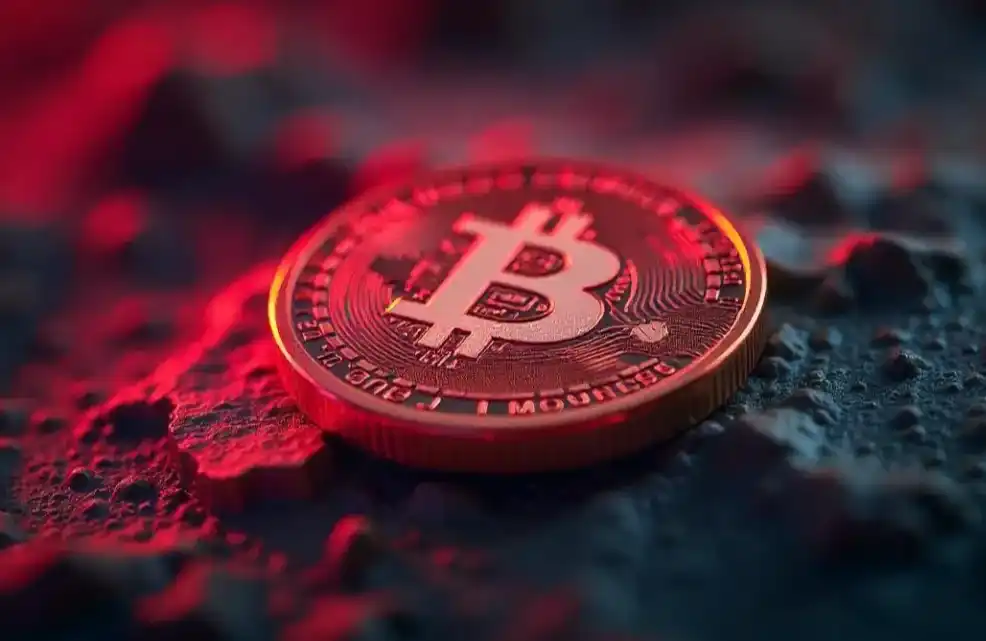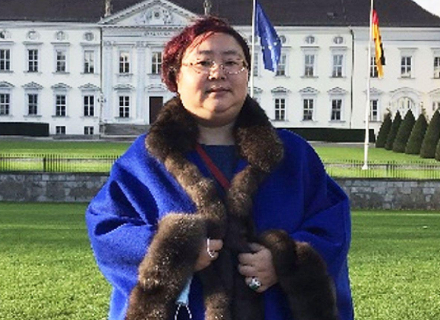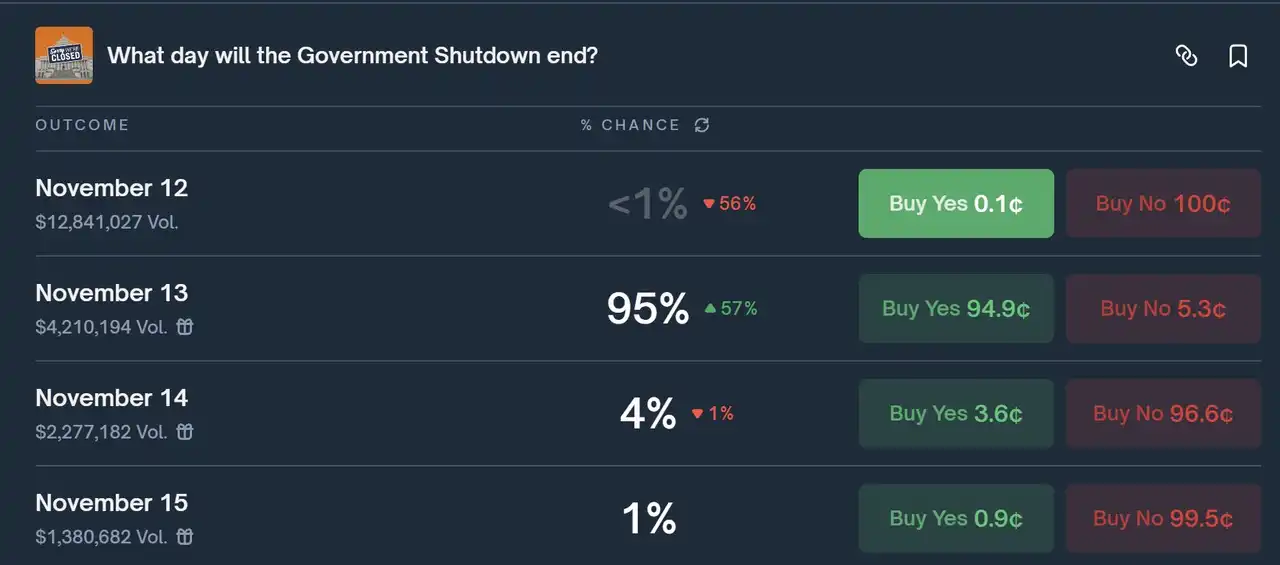On September 22, the "Global Blockchain Forum" jointly organized by LBank Labs, Korean lawmaker Min Byung-deok, and the Korea Blockchain Industry Promotion Association (KBIPA) was successfully held at the National Assembly Library in Seoul, South Korea. The forum focused on cutting-edge topics such as building an open Web3 ecosystem in Korea, AI and on-chain integration, stablecoin development philosophy, and metaverse infrastructure construction. Distinguished guests including Korean National Assembly member Min Byung-deok, CodeVASP CEO Lee Sung-Mi, and Seoul National University Professor Han Jung-Suk engaged in in-depth discussions on blockchain policy, technological innovation, and Web3 ecosystem collaboration, injecting strong momentum into the sustainable development of the global blockchain industry.
The forum brought together policymakers, business executives, Web3 innovation pioneers, and academic experts from the global crypto industry. Representatives from top institutions such as KBIPA, LBank Labs, Animoca Brands, CodeVASP, Ethereum Foundation, Kaia DLT Foundation, and Solana Foundation gathered together. At the same time, core figures from well-known Web3 projects such as Kaia, Berachain, Abstract, Manta Network, Aethir, and LayerZero also attended the forum to jointly discuss industry trends and ecosystem collaboration paths.
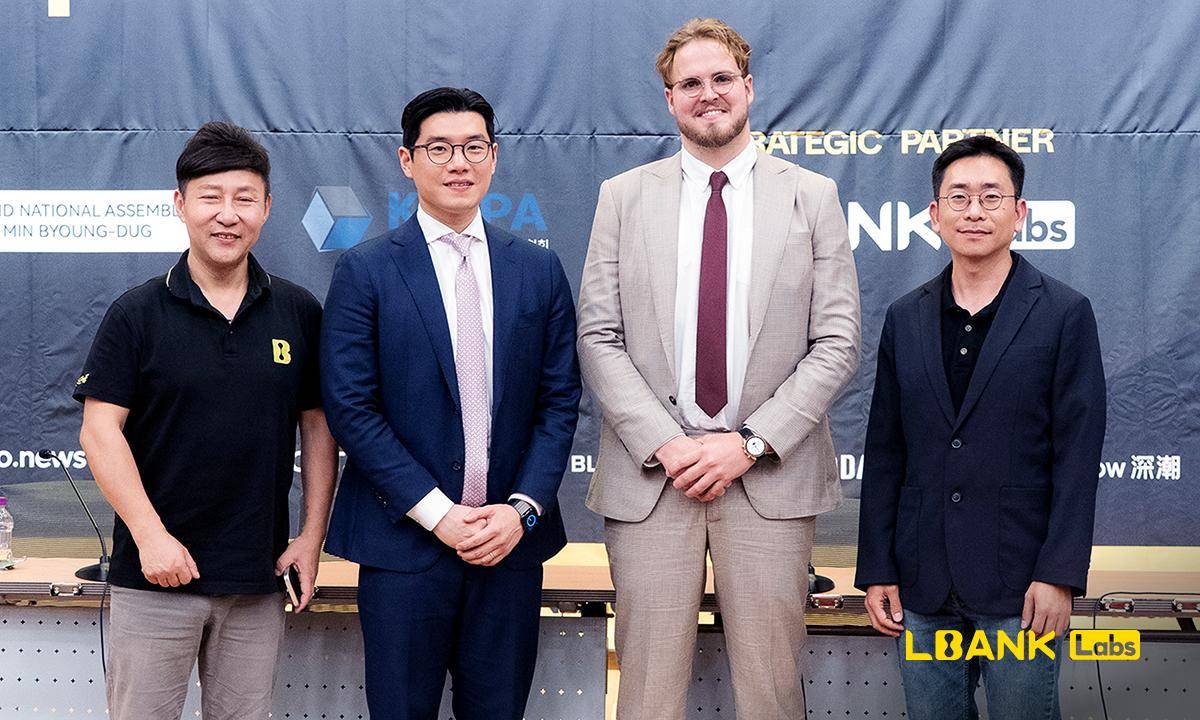
As a global Web3 venture capital institution, LBank Labs is accelerating the construction of an open innovation ecosystem, focusing on compliant infrastructure, AI and blockchain integration, and RWA applications, providing funding, technology, and market support for developers and projects worldwide. This forum is not only a platform for the convergence of policy, technology, and industry, but also demonstrates LBank Labs' vision to promote the global implementation of Web3.
Forum Opening: Policy Empowering Korea's Open Web3 Ecosystem
The forum was opened by Min Byung-deok, a member of the Democratic Party of Korea. As a core promoter of digital finance legislation in Korea, Min led the "Basic Law on Digital Assets," which laid the institutional foundation for Korea's digital asset market. In his speech, he emphasized: "Compliant innovation is fundamental to the sustainable development of the blockchain industry, and Korea is committed to building a safe and vibrant Web3 ecosystem." He proposed that artificial intelligence is changing our perception of "intelligence," while blockchain is "rewriting the way we trust," and defined the future financial landscape with the formula "RWA (Real World Assets) + STO (Security Token Offering) × Stablecoin."
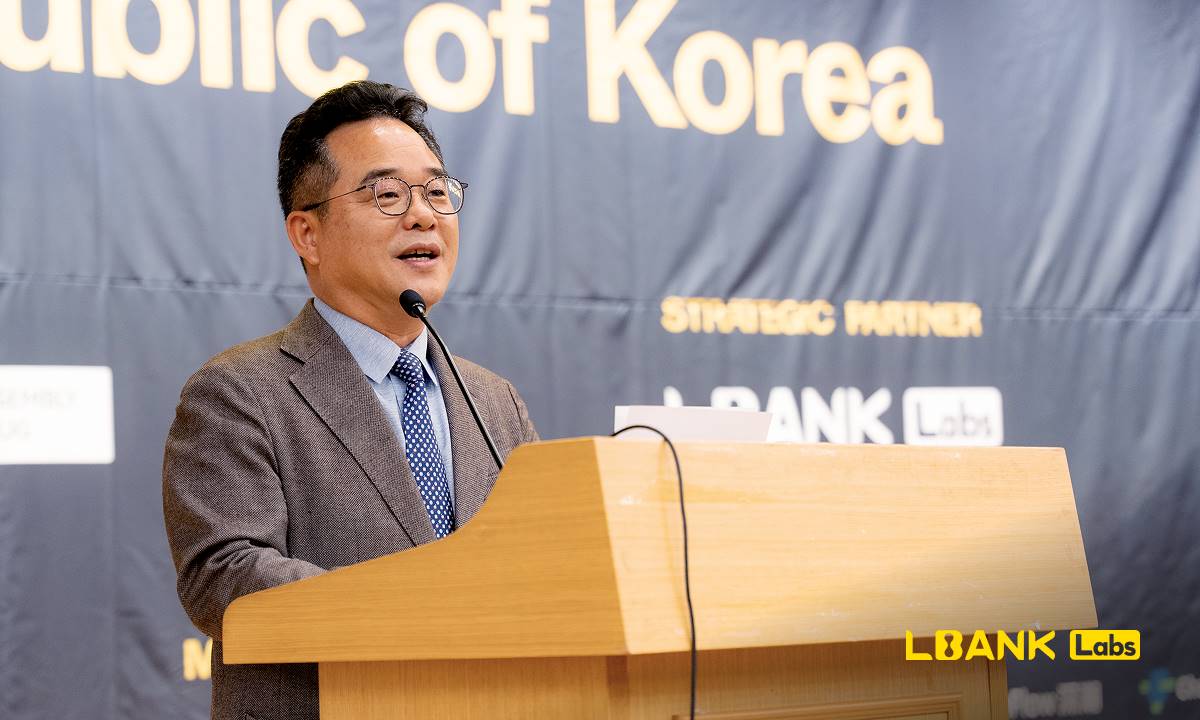
Min further introduced the "Three Digital Asset Laws"—the "Basic Law on Digital Assets," the "Spot ETF Law," and the "Token Securities STO Law"—aimed at balancing investor protection and industry innovation. He specifically pointed out that the Korean won stablecoin is not only a trading tool but also key to protecting Korea's financial sovereignty and reducing payment costs for SMEs. In the future, it will be combined with K-content and K-apparel to create global economic opportunities. Currently, there are 6 million digital asset investors in Korea, with a daily trading volume of 11 trillion won, but policy still needs to catch up with the pace of the market.
KBIPA President Kim Hyung-kyu stated: "Blockchain is a borderless global business field, and Korea needs to accelerate application implementation through international cooperation and technological innovation." He emphasized that the forum will narrow the gap between Korea and global experts and provide strategic guidance for Korea to leapfrog as a digital financial center. Lawmaker Kim Hee-jung of the People Power Party and independent lawmaker Kim Jong-min also attended the event. Kim Hee-jung called for strengthening lawmakers' understanding of blockchain to promote legislation, while Kim Jong-min pointed out: "AI and Web3 are the two pillars of future society. Web3 solves the fragmentation of digital society through decentralized connectivity, leading the era of cross-industry interconnection."
In the global cryptocurrency landscape, Korea is rising at an astonishing speed. By 2025, the total cryptocurrency trading volume denominated in Korean won has reached $663 billion, making it the world's second-largest crypto market after the US dollar. Korea has long maintained a global lead in the trading of non-mainstream coins, with the highest non-mainstream coin trading volume in the world, and as much as 25.4% of the population actively participating in crypto trading—a level of engagement rarely seen globally. This enthusiasm has also given rise to the unique "kimchi premium" phenomenon. Meanwhile, the Korean government is actively reshaping the crypto regulatory framework, shifting from restrictive policies to a new stage of encouraging innovation and market development. The recently launched crypto ETF roadmap and stablecoin development plan not only inject new institutional benefits into the market but also further consolidate Korea's strategic position as an important crypto market in Asia and globally.
Industry Dialogue: In-depth Reflection from Tokenization to Regulatory Frameworks
The first half of the forum focused on in-depth discussions around policy formulation and industry development strategies, with multiple topics centering on key paths for building Korea's Web3 market environment.
Tokenization Wave and Digital Property Rights: Animoca Brands co-founder Yat Siu explained the potential of tokenization, pointing out that it is not limited to on-chaining real-world assets, but also transforms data and attention into "digital native property rights," breaking the monopoly of Web2 giants. Stablecoins bring financial inclusion to 150 to 200 million unbanked users, and NFTs reshape gaming assets and cultural capital. Yat Siu emphasized that tokenization can revolutionize educational finance, and Korea, with its intellectual property advantages, will lead the prosperity of the digital economy.
Collision of Academic and Legal Perspectives: Seoul National University Professor Han Jung-Suk analyzed the "Overview of Blockchain and the Future of Digital Asset Exchanges." He pointed out that the digital asset market is fragmented due to the diversity of centralized exchanges (CEX), decentralized exchanges (DEX), cross-chain bridges, and Layer-2s, leading to dispersed liquidity and fragmented price discovery. The current market faces increased slippage, fees, delays, and MEV (Miner Extractable Value) frictions, but aggregators and cross-chain bridges are gradually unifying liquidity, and ETFs and tokenized assets will deeply integrate on-chain and off-chain markets. He predicted: "The transparency and programmability of blockchain will accelerate market evolution, and liquidity integration and improved price discovery efficiency will be the future direction."
Cha Sang-Jin from BECOME Law Firm interpreted the "Regulatory Framework for Stablecoins, Security Tokens, and Spot ETFs," exploring the balance between innovation and risk. Professor Yoon Min-Seop from Soongsil University systematically analyzed "Formulating Digital Asset Legislation: Shaping the Future of Korea's Industrial Ecosystem," focusing on legislative timing, regulatory boundaries, and innovation protection. During the discussion, guests engaged in intense debates around core issues, ultimately forming a triple strategic framework of "policy first, industry follow-up, and international cooperation."
The subsequent roundtable discussion "Policy and Industry Strategies for Korea to Become a Global Digital Asset Center" saw policymakers and industry experts brainstorm, starting from a global positioning perspective and producing a pragmatic action roadmap. This was like a feast of reflection, with policy first, industry follow-up, and international cooperation revealing how Korea can leverage Web3 to seize the international high ground.
Driven by Technological Innovation, Four Sessions Decode the Future of Web3
The second half shifted to technical practice, showcasing the evolution path of Web3 through four sessions, progressing from compliance entry to infrastructure, then to AI integration and the metaverse.
Compliance and Market Entry Strategies: In her keynote "Entering the Korean Market: Understanding and Complying with the Travel Rule," CodeVASP CEO Lee Sung-Mi provided a detailed analysis of Korea's strict compliance requirements, focusing on the implementation of the "Travel Rule," offering practical guidance for Web3 companies entering the Korean market. She emphasized that compliance is not only a legal requirement but also the cornerstone of building market trust, and shared how CodeVASP helps companies achieve cross-jurisdictional compliance operations through technical solutions, providing a feasible path for global projects to land in Korea.
LBank Labs Head Czhang Lin, in his speech "Bridging the Gap: Opportunities in the Integration of Web3 and Traditional Finance," pointed out that the integration of Web3 and traditional finance focuses on three major opportunities: First, institutional funds are accelerating inflows, and crypto ETFs have become the core financial tool connecting traditional markets; second, the rise of Digital Asset Treasuries (DATs), where companies optimize capital structure by allocating crypto assets, significantly improving traditional market stock performance; finally, SPACs, with low cost and transparent processes, have become the ideal listing path for growth-oriented Web3 projects. Czhang Lin emphasized that the combination of ETFs, DATs, and SPACs builds a bridge for Web3 projects to enter traditional financial markets. In the future, outstanding projects need to leverage dual liquidity from exchanges and capital markets to build global competitive advantages. This insight provides a clear direction for the capitalization strategy of Web3 projects.
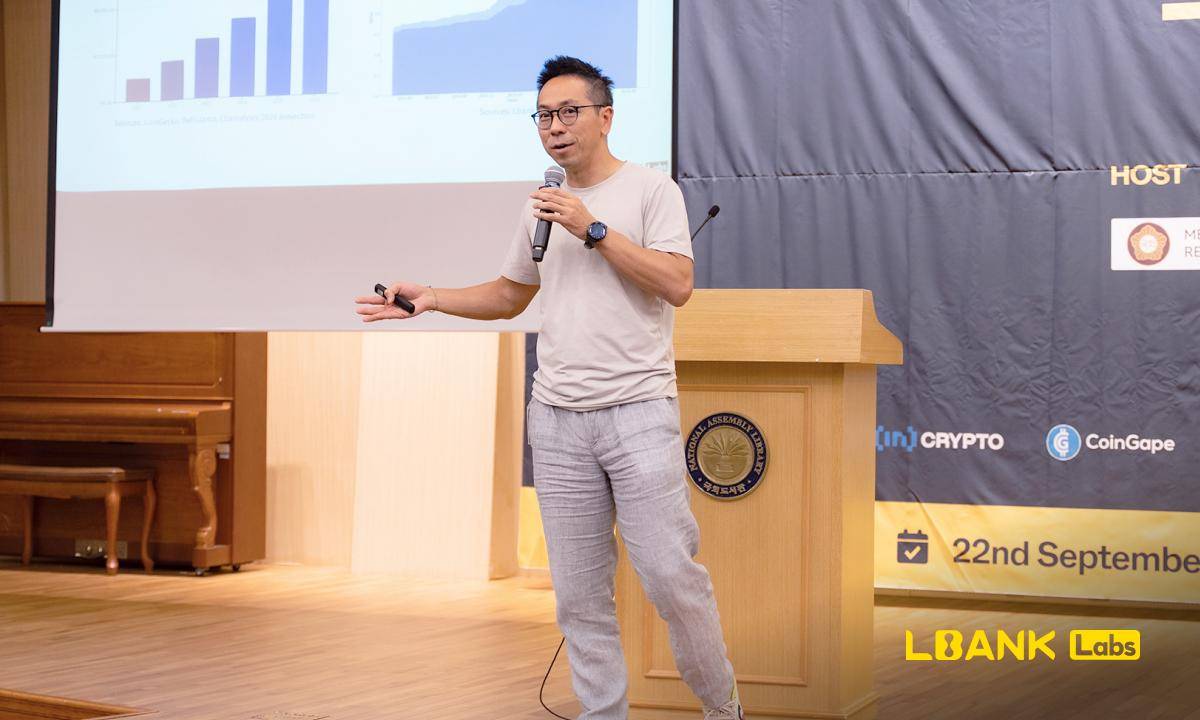
Infrastructure Discussion: In the roundtable "Building the Next Wave: Creating Next-Generation Primitives for Layer 1 and Layer 2," Ramzy, Head of DeFi Growth at Solana, Jonathan Covey, CMO of ZetaChain, Kenny Li, Co-founder of Manta Network, and Jason, Co-founder of Abstract, deeply discussed the evolution logic of public chain ecosystems. The discussion pointed out that the success or failure of crypto applications does not depend on single-chain or multi-chain, but on hiding underlying complexity through chain abstraction or infrastructure abstraction to provide users with a frictionless and smooth experience. Multi-chain symbiosis is the trend, but the market may concentrate on a few core chains. Developers need to seek breakthroughs in vertical fields or specific user groups, while users always care about the ease of use and experience of applications.
Stablecoin Philosophy Dialogue: The topic "Stablecoins Are Inevitable: Reconstructing the Future of Digital Currency" brought together three industry experts: Alex Lim, Head of Asia Pacific at LayerZero, SangMin (Sam) Seo, Chairman of Kaia DLT Foundation, and Ash Morgan, Head of Stablecoins and RWA at Ethereum Foundation, to analyze the strategic role of stablecoins. Alex Lim emphasized that LayerZero's cross-chain interoperability protocol significantly enhances the liquidity and usability of stablecoins in DeFi and RWA scenarios by efficiently bridging multi-chain ecosystems. SangMin (Sam) Seo pointed out from an economic perspective that stablecoins reduce cross-border payment costs and provide financial services to the unbanked, and are expected to drive a 30%+ increase in emerging market trading volume after 2025. Ash Morgan focused on decentralization, believing that the censorship-resistant mechanism of stablecoins lays the foundation for global financial autonomy. On the topic of "Will CBDCs Replace Stablecoins," the guests believed that the two will form a complementary pattern in payment, investment, and reserve functions, with stablecoins occupying a core position in DeFi's automated markets and RWA tokenization, driving the reshaping of digital finance.
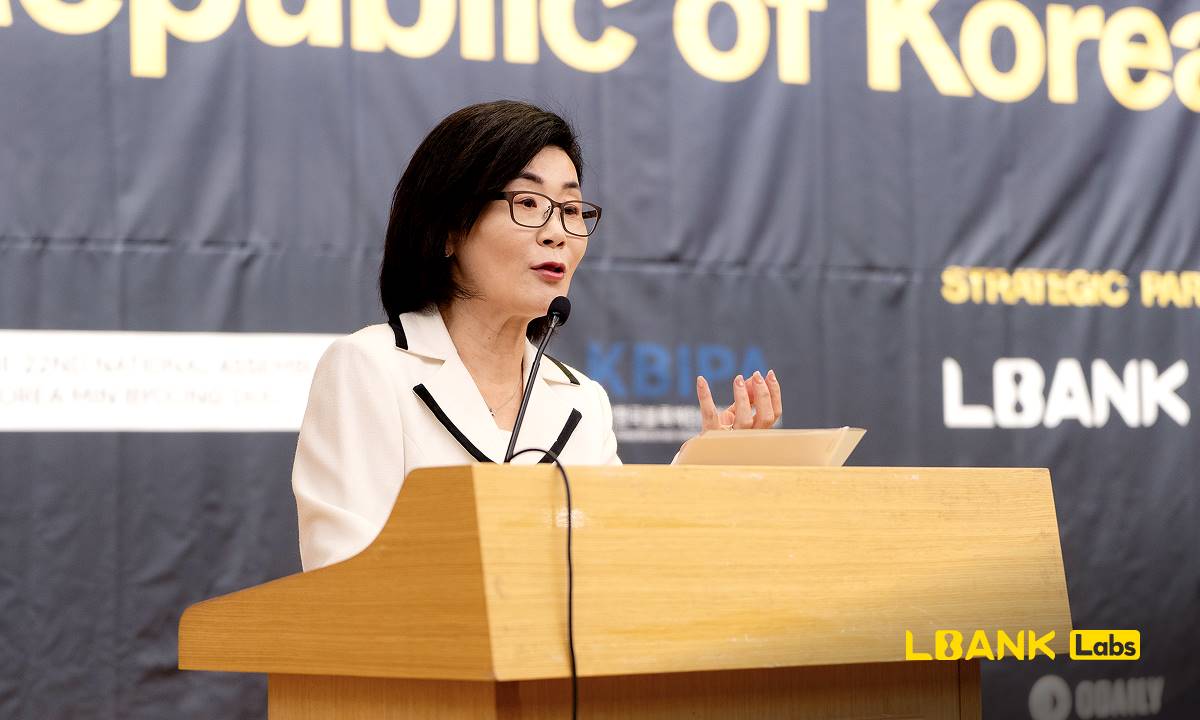
Pragmatic Full-Stack Metaverse Construction: When discussing "Driving the Metaverse: A Full-Stack Approach to Scalable, Secure, and Sovereign Digital Worlds," Caldera CEO Matthew Katz, Alibaba Cloud Chief Architect Zhao Qingyuan, Berachain APAC Head Ella Qiang, and SlowMist CTO Blue explored the engineering path of metaverse infrastructure. Matthew Katz introduced how Caldera's Rollup technology achieves a virtual economic system with thousands of transactions per second through modular design, reducing transaction costs by 99%. Zhao Qingyuan shared Alibaba Cloud's decentralized storage solution, which, combined with on-chain data indexing, optimizes asset management efficiency in the metaverse. Ella Qiang emphasized how Berachain's decentralized identity (DID) protocol enables cross-platform user sovereignty and asset interoperability. Blue focused on SlowMist's security framework, which protects metaverse platforms from attacks through real-time threat detection and zero-trust architecture. The experts unanimously agreed that unified technical standards and ecosystem collaboration are the foundation for implementation, and engineering solutions are needed to address challenges such as inflation spirals.
AI Session Ignites the Web3 Innovation Engine: In the session "Intelligent Bonds: The Integration of AI and On-Chain Reality," IoTeX CEO Raullen Chai, Theoriq Foundation Chairman Jeremy Millar, Aethir Co-founder and CEO Daniel Wang, and BluWhale Co-founder Han Jin discussed the integration potential of AI and blockchain. Raullen Chai emphasized the driving role of AI in data privacy and smart contract optimization, predicting that it will become the core engine for Web3 implementation. Jeremy Millar pointed out that AI-driven smart contracts will reshape efficiency boundaries. Daniel Wang shared how Aethir's decentralized GPU network empowers AI model training. Han Jin focused on BluWhale's on-chain data applications, outlining the prospects for decentralized AI agents. The discussion indicated that the integration of AI and Web3 will drive a paradigm shift in the data economy and smart contracts within the next 3-5 years, becoming the core engine for large-scale Web3 implementation.
LBank Labs: Bridge and Promoter of the Global Web3 Ecosystem
As a Web3 venture capital institution managing over $100 million in assets, LBank Labs has long focused on compliant infrastructure, regulation-friendly DeFi, AI integration, and institutional-grade solutions, and has invested in multiple forward-looking projects globally, continuously supporting the development of the digital economy. The successful hosting of this forum not only demonstrates LBank Labs' advantages in industry organization and ecosystem appeal but also further highlights its key position in global blockchain topics.
Looking ahead, LBank Labs will continue to leverage its unique ecosystem connectivity advantages, work with global partners at the intersection of technological innovation, regulatory compliance, and commercial applications, continuously injecting development momentum into the blockchain industry, and accelerating the global implementation and large-scale application of Web3 innovation achievements.

